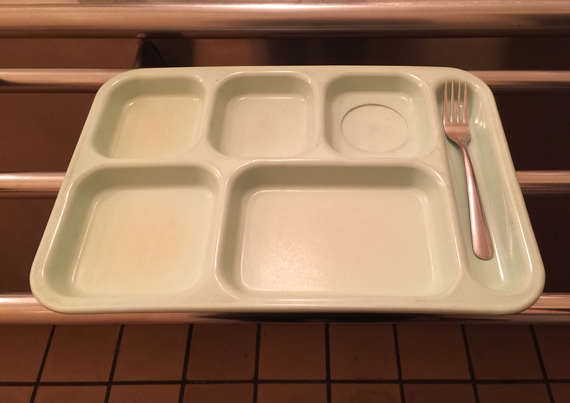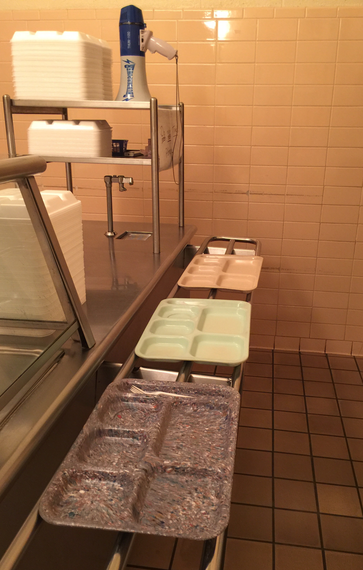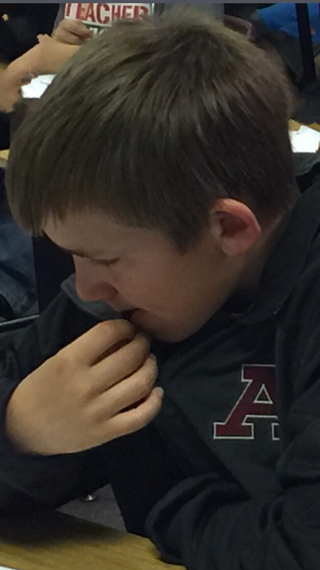Of all the institutions explored in the United States none impact lives more permanently and personally than education. Offering a broad curriculum base available to the masses, Oklahoma public school students learn to reflect on their world, make personal and mental connections learning to actively evaluate. It is through the use of foundational as well as scaffolded, assimilated and accommodated information learned through active participation in the public school setting that masses of adults assess electric bills and medical test results, read interstate road signs and evaluate food labels. Public education provides a lasting knowledge base used in every walk and stage of life. This is why, historically, a great emphasis has been placed on public education.
Today some take a different stance on the topic of public education. State legislators, task forces, corporate entities, and parental organizations have sprung to the forefront of the public education debate. Some of these groups disagree with Oklahoma public education for the masses contending that a more suitable approach to education is one where schools are privatized--meaning that students' parents would pay tuition above and beyond any state enacted allocation in order for children to attend.
As our legislators vie for influence and this 55th Oklahoma legislative session winds to an end, the educational debate continues in a highly charged arena at the Oklahoma State Capitol. Will public schools be funded? Will public schools become private schools? Will any of the cluster of anti-public education bills known as SB609, SB1187, HB2949, or HB3156 pass dismantling public education in the state of Oklahoma? Will learning become a "privatized profit making extravaganza?" (Harris, 2016, p.3) An array of voices are heard--yet no one knows. As the cyclical, back and forth banter rages on, we have failed to publically hear the voices of those who this debate touches the most--the Oklahoma public school students'. This investigation seeks to shed light on the budget cuts impacting the Oklahoma public school educational experience from the students' perspective.
Students' Voices
Phillip, 1st Grade
It's starving---my school.
Kim A. Harris/Photo
Toby, 5th Grade
Because of budget cuts we don't have the money to get supplies. I don't like the budget cuts. I fear that there will be no more school. I hope that school will not be shut down.
Anthony, 6th Grade
The budget cuts are effecting my education by limiting the resources I and many other students need to help us learn. I feel ashamed and am embarrassed to live in a state where education (one of the most important things any kid needs) is being taken apart because of loss of money.
Gabrielle, 6th Grade
The budget cuts are effecting our education by us not having paper or ink for the printer, and us having less school days. My feelings about the budget cuts are how does the state expect us to learn and grow as students if they are taking away the money that is supposed to make that happen. It is like they expect us to be educated with no money. I mean, the poor teachers suffer from it too. They have families they also have to provide for. We aren't the only ones suffering. I hope that in the near future they will put their heads back into place and don't have anymore budget cuts. My fears are that the problem will only get worse and worse and we'll have no future as a learner.
Kira, 6th Grade
Budget cuts are making me have to have fundraisers just so we can replace light bulbs. They are cutting down my education. I worry that if they keep taking more and more money that all of the schools/universities will shut down before I graduate. Please stop taking our money away.
Maggie, 10th Grade
I worry about my future. I worry that my educational opportunities will be limited. I worry that I won't be able to get into the college of my dreams because of the negligence of our state government. I have aspirations of making a mark on this world. I'm afraid that I won't get to make my mark if I lose valuable educational opportunities in high school. I want to do great things and make the world a better place; I can't do that if my high school career gets cut down to a four day week and the electives and classes that round out my schedule start getting taken away because of the education system's severe lack of funding. At my high school, I have many teachers that I admire. They don't deserve to lose a job that they love having because of the severe laxity of Oklahoma's state government.
Gillian, 10th Grade
I remember that when I was in 3rd grade, people started talking. I heard that class sizes were going to have to increase because we didn't have the money to pay as many teachers anymore. They said we may even have up to 22 students in one class, like that was some crazy number. The adults were all concerned that we wouldn't be able to learn as much if we had that many students in a classroom at the same time. Fast forward. I am now in 10th grade, and several of my classes have around 30 students in them. We don't have enough desks for every student; a couple students in each class have to share a desk, sit on the floor, or sit at the teacher's desk while he or she is teaching. We don't have tissues in the classrooms for when we have to blow our noses; much less textbooks that are in adequate shape to be used in a learning environment. I feel as though I do more fundraising than I do homework. We've had to cut the remainder of the school year, causing us to cram all our tests and reviews into a few very short weeks. This is what the Oklahoma education crisis is. In 2008, we were concerned about having 22 students in a classroom. In 2016, we don't even have enough desks for students to sit at, much less enough teachers. The Oklahoma government has failed to provide me, along with every other public school student in the state, with an education that will prepare me for college and the rest of my life.
Students' emotions are discernible and run the gamut from present, real-time fears to future wonderings and concerns. Their words portray the endurance of negativity. Will the ink cartridge be replaced? Will there be enough copy paper? What will be the impact of a shortened school year? Will teachers and their families be provided for? Will their [students'] knowledge base be one that sustains university attendance? Will they [the legislature] "put their heads back into place" (Gabrielle, 2016) and fund Oklahoma public schools?
Students' shame runs deep. It is not often that the mind of a sixth grade student ventures into politics. Developmentally they live in a narrow, egocentric world. "Things hardly come within his experience unless they touch, intimately and obviously, his own well-being, or that of his family and friends." (Dewey, 1902, pp. 8-9) To unearth the shame of a sixth grade boy in his home state's government is staggering. To learn that a first grader is aware that his school is starving is unconscionable!
Following a narration of life at her high school, Gillian reaches the "bottom line" with the declarative statement, "This is what the Oklahoma education crisis is." With profound realization, she beckons adults to perceive the destruction that is occurring to Oklahoma public schools.
Students' outward expressions of concern, disgust and anger suggest a loss of connectivity. They are telling us that they are afraid now and for their future. They are saying that the ongoing and unresolved debate regarding the future of Oklahoma public education is negatively impacting their environment. Their words reflect a disruption to their basic, lower-level need for a safe atmosphere. They are speaking of a loss of connection with their educational reality. These conversations suggest that a negative atmosphere may prove to disenfranchise all students preventing them the intellectual and emotional growth that they deserve.
Today Oklahoma students are beseeching adults to reflect seriously and act judiciously as they create and sustain a sound Oklahoma public school system for; THERE'S MORE THAN ONE WAY TO STARVE A CHILD!
REFERENCES
Anonymous. (2016). "Budget Cuts". Unidentified. Gabrielle.
Bill Information for SB609. (2016). Oklahoma state legislature. Retrieved from http://www.oklegislature.gov/BillInfo.aspx?Bill=SB%20609
Bill Information for SB1187. (2016). Oklahoma state legislature. Retrieved from http://www.oklegislature.gov/BillInfo.aspx?Bill=SB%201187
Bill Information for HB2949. (2016). Oklahoma state legislature. Retrieved from http://www.oklegislature.gov/BillInfo.aspx?Bill=hb2949
Bill Information for HB3156. (2016). Oklahoma state legislature. Retrieved from http://www.oklegislature.gov/BillInfo.aspx?Bill=hb3156
Dewey, John. (1902). "The child and the curriculum". Chicago, Illinois: The University of Chicago Press.
Harris, Kim A. (2016). "Oklahoma public education under attack: the ALEC, CRPE, legislative connection". Huffington Post. New York: NY. HPMG News. Retrieved from http://www.huffingtonpost.com/kim-a-harris-phd-/oklahoma-public-education_b_9696346.html


